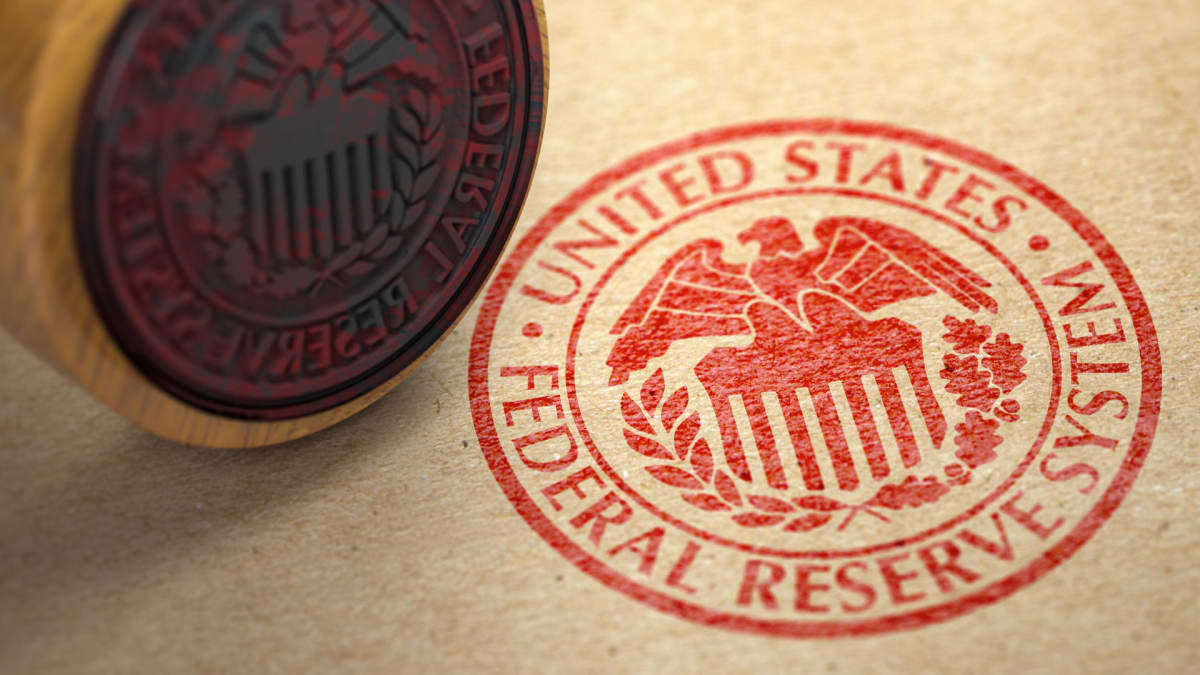
The Federal Reserve established a fresh line of U.S. dollar swaps with five other major central banks in an effort to ensure smooth funding conditions in the wake of mounting concerns for the health of the global financial system.
The Fed said it would increase the frequency of so-called swap lines, which provide access to U.S. dollar funding, from weekly to daily, with the the European Central Bank, the Bank of Japan, the Bank of England, the Bank of Canada and the Swiss National Bank.
"The network of swap lines among these central banks is a set of available standing facilities and serves as an important liquidity backstop to ease strains in global funding markets, thereby helping to mitigate the effects of such strains on the supply of credit to households and businesses," the Fed said in a statement published on its website.
Only $106 million was taken in the first offering of the enhanced swap lines Monday, with two banks in Switzerland accessing it for $101 million and one bank in the Eurozone taking $5 million.
The U.S. dollar index, which tracks the greenback against a basket of six global currency peers -- all but one of which were included in the swap lines -- was marked 0.3% lower in mid-day Monday trading at 103.441, suggesting little demand for dollars amid the improving banking landscape.
The Fed's move follows the late-Sunday rescue of Credit Suisse (CS), which was sold at the behest of authorities in Switzerland to its crosstown rival, UBS Group (UBS), for around $3 billion following days of speculation over the health and capital position of one of the world's twenty most important banks.
UBS will pay around $3 billion for Credit Suisse in an all share-deal that values the bank at 0.76 Swiss francs per share, 60% discount to its Friday closing value. UBS will also get a $9 billion swiss franc backstop on unrealized losses at Credit Suisse.
The Swiss National Bank said the deal, which includes 100 billion Swiss francs ($104 billion) in liquidity assistance for both firms, will "secure financial stability and protect the Swiss economy in this exceptional situation." Karin Keller-Sutter, Switzerland's Finance Minister, added that a Credit Suisse bankruptcy would have cased "irreparable consequences" for global financial markets.
The U.S. banking crisis also remains simmering, however with a second credit rating downgrade for troubled San Francisco-based lender First Republic Bank (FRC) by Standard & Poor's and the late Friday bankruptcy filing for SVB Financial, parent of the failed Silicon Valley Bank, which was placed under the administration of California regulators on March 10.
S&P, which lowered First Republic's rating three notches and into junk status at B+, said it faced "high liquidity stress with substantial outflows".
Last week, in an effort to ease concerns over the health of U.S. bank deposits, the Fed launched a new bank lending program, which offers unlimited funds -- if backed by high quality collateral -- to stressed U.S. lenders.
Those securities will not be subject to the usual discount, or haircut, when used as loan collateral, the Fed said, allowing U.S. banks to get fast cash based on their full par value.
Banks are sitting on an estimated $620 billion of unrealized losses from Treasury, agency and MBS bonds following the surge in market interest rates that has swamped fixed income portfolios worldwide.
Get exclusive access to portfolio managers and their proven investing strategies with Real Money Pro. Get started now.







